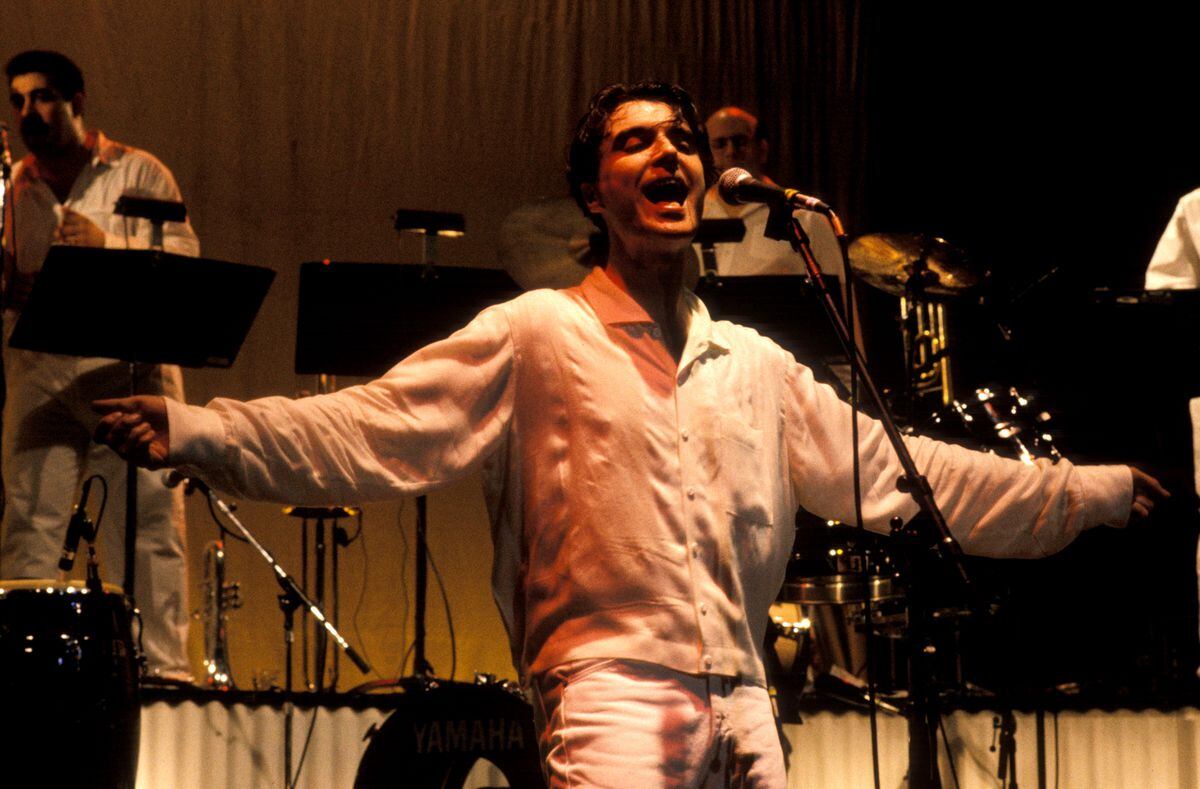Scottish-American David Byrne occupies a prominent place on the map of contemporary Western culture and offers an interesting starting point for understanding the importance of music in global cultural interchange.
Byrne's arrival in New York's new wave and alt-rock scene in the mid-1970s was the beginning of a musical journey that has grown roots in soil enriched by diverse influences, sounds and disciplines from various parts of the world.
A key figure at a time when contemporary music was awash with the heterogeneous sounds of punk, disco, hip hop, salsa and countless other styles, Byrne's innate curiosity often turned for inspiration to Latino music.
As if it wasn't enough to create the distinctive Talking Heads (1975-1991) sound, or to immerse himself in writing, theater, film, social activism and even urban planning, Byrne's interest in Latino music evolved into a wholehearted embrace of a genre and culture that he actively promotes.
David Byrne was already a fan of artists like Caetano Veloso and Celia Cruz when the Talking Heads first began to flirt with the sounds of tropical Latin America.
But when he embarked on a solo career in the late 1980s, Byrne became much more intentional about the music.
His Rei Momo (1989) album released under the Luaka Bop label signaled the first phase of Byrnes' effort to spread music from all over the world, including Latin America, of course.
Reflecting on his abrupt pivot from rock to the musical roots of Latin America in a 2020 interview with Pitchfork magazine, Byrne said, “I decided I wanted to do a salsa record, which I did in the early '90s.
And I did another one a few years after that.
It was a little less strictly salsa, but it was still in that vein, and I had a wonderful time with a huge band, [Rei Momo].
We toured everywhere, and a lot of folks in the United States did not like it at all.
Oddly, people in Latin America really liked it, but not because it was their music.
For a lot of the rockers in Argentina or Mexico, it was like, 'He's playing our parents' music'.”
Byrne summed up his fascination with Latino culture in his book How Music Works (Reservoir Books, 2014).
“The vaguely melancholic melodies over the syncopated grooves – typical of Latin music – appealed to me as an emotionally liberating combination.
The melodies and often the lyrics could be tinged with sadness, while the buoyant music acted as a counterweight – a sign of hope and an expression of life going on amid life's calamities.”
Through the Luaka Bop label, Byrne has brought the music of Silvio Rodríguez (Cuba), Los de Abajo (Mexico), Tom Zé (Brazil), King Changó (Venezuela-New York), Susana Baca (Peru), Los Amigos Invisibles ( Venezuela), and many others to European and American music lovers.
The creator of the acclaimed Broadway show and HBO film American Utopia often mentions his attraction and involvement with Latino music in interviews, saying that it came from being fed up with rock and disco.
“I found that at the Latin Clubs I went to, the music was much better to dance to.
It was live, and I had a much better time… I don't think [rock] has the kind of charge or power it once had.
It's a commodity, it's a product, it's big business,” said Byrne in an interview with The Harvard Crimson.
At age 70, David Byrne has returned to performing live shows reminiscent of his days with the Talking Heads.
However, he continues to incorporate updated versions of Latin American music in his work, perhaps drawing on his friendship with Caetano Veloso (Brazil) and Camilo Lara (Mexico) for inspiration.
His body of work and collaborations with Latin American artists have made Byrne an obligatory point of discussion in the ongoing conversation about the future of Latino music.

